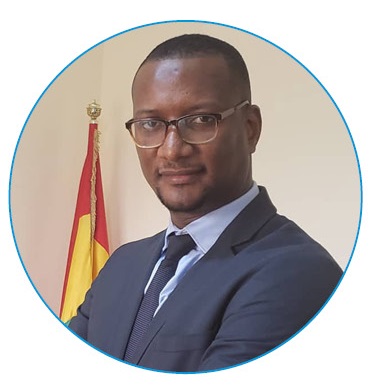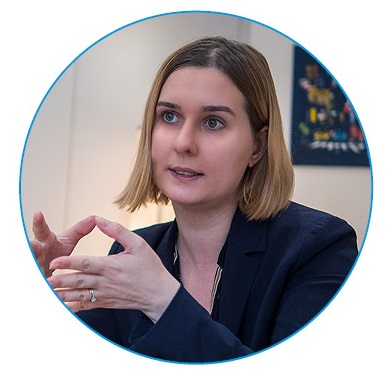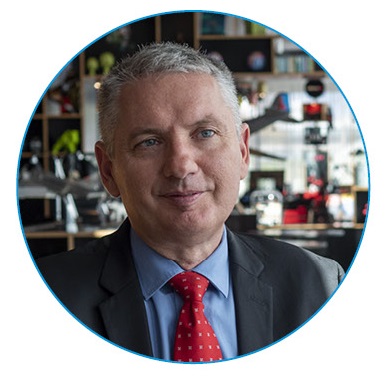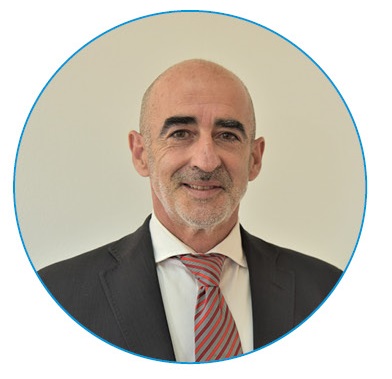An example of the Covid-19 response: Guinea has set up an SME Support Fund that is contributing to business formalisation
What is the mission of the Support Fund led by the Industrial and SME Development Fund (FoDIP)?

Aliou Souaré, Chief Executive Officer of the FoDIP – This Fund provides refundable financial assistance to Economic Interest Groups (EIGs) and companies that have been badly affected by the economic, financial and social consequences of the Covid-19 pandemic. The main objective is to maintain the jobs threatened by the business closures or reduction in activity. The Fund decides on the requests and terms for the allocation of loans to EIGs and companies. It is also developing a database on the structures supported.
 The main objective is to maintain the jobs
The main objective is to maintain the jobs
At this stage, 370 requests from the formal sector have been processed. We now hope to give companies from the informal sector access to FAGIEE loans. To promote their entry into the formal sector, we welcomed the proposal of the PACCAF team to make loans conditional upon the company’s status.
How will this conditionality of aid facilitate business formalisation?

Malgorzata Nedjam, PACCAF project officer at Expertise France – We saw very early on, with the creation of the Support Fund, the opportunity of broadening the tax base, meaning increasing the number of companies in the formal sector which will consequently be subject to tax. The idea is to make the allocation of a loan conditional upon a series of actions that would allow the company to be up-to-date with its tax obligations. In short, encourage it to enter the formal sector and give it a status with regard to the tax administration.
 Giving incentives is a widely documented concept in behavioural economics
Giving incentives is a widely documented concept in behavioural economics
Giving incentives is a widely documented concept in behavioural economics and research on development economics. Research conducted in India and Sub-Saharan African countries [1] has shown that making cash transfers conditional upon the enrolment of girls at school can have an immediate significant impact on their level of education. This is what is implemented by the National Agency for Economic and Social Inclusion (ANIES) in Guinea. In the field of public finances, Khan, Khwaja and Olken (2014) have shown that offering performance bonuses to tax inspectors responsible for valuing property and the land register has increased revenues by over 9%. By taking a similar approach to economic support during the pandemic, the objective is to continue to broaden the tax base, while supporting SMEs in a difficult context.
What is the interest for companies in entering the formal sector?

Henri Nicolic, lead tax expert and manager of the PACCAF – Entering the formal sector does, of course, mean paying taxes to the tax administration, but formalisation also offers advantages to companies: benefit from low-interest loans, have access to the banking market to invest and develop. This is not the case when they are in the informal sector where rates are often very high, at about 60% on average. By way of comparison, the rate of the loans allocated by the FAGIEE stands at 5%. It is therefore a mechanism with a lot of incentives for companies.
 Benefit from low-interest loans, have access to the banking market
Benefit from low-interest loans, have access to the banking market
In terms of the administration, the formalisation of companies will eventually increase, stabilise and ensure the sustainability of the amount of the revenues collected, which are necessary to finance public expenditure. As it should be pointed out that Guinea has strong tax potential: it has wide margins to broaden the tax base.
Why is this broadening of the tax base crucial for the economic development of Guinea?
 Juan José Villa Chacon, Head of Cooperation of the Delegation of the European Union in Guinea – The broadening of the tax base and the increase in the number of fiscally active companies is necessary for development and an essential stage for independence from external aid. In Guinea, the European Union has been working on the theme of public finances since 2010 and in particular on the issue of mobilising domestic resources.
Juan José Villa Chacon, Head of Cooperation of the Delegation of the European Union in Guinea – The broadening of the tax base and the increase in the number of fiscally active companies is necessary for development and an essential stage for independence from external aid. In Guinea, the European Union has been working on the theme of public finances since 2010 and in particular on the issue of mobilising domestic resources.
 We are fully committed alongside Guinea
We are fully committed alongside Guinea
Today, we are fully committed alongside Guinea for the implementation of the measures of the National Economic Response Plan. Back in May, when the Plan was released, we were called on for the experts of the PACCAF – a project financed by the European Union – to provide their expertise in business formalisation to the FAGIEE. We hope there will be positive impacts in terms of formalised companies by 2021 and we remain at the disposal of the authorities to continue the support.
How does the Support Fund work in practice?
Henri NICOLIC – Several criteria need to be met for a company to be formalised: companies must be registered with the Agency for the Promotion of Private Investments (APIP), geo-localised and handled by the services of the National Tax Directorate (DNI). Once these criteria have been met, they are eligible for a loan from the FAGIEE. It has signed financing agreements with 16 financial institutions – 10 banks and 6 microfinance institutions – which are responsible for managing the loans. The State also covers the interest rate subsidy for the loans allocated to companies, which stands at 13 percentage points, i.e. the difference between the rate of the current banking market (18%) and the rate of subsidised loans (5%).
This mechanism can rely on Approved Management Centres (CGAs), which are local facilities that assist companies with their formalities and have been supported by the PACCAF since they were set up. They offer services for accounting, tax assistance, management consultancy, training for managers and assistance with access to credit, by helping companies prepare their financing requests. Furthermore, through their knowledge of the informal sector, CGAs could help select companies eligible to access advances.
What support has the PACCAF provided for the creation of this Fund?
Henri NICOLIC – We proposed a series of changes to the Chief Executive Officer of the FoDIP back in June 2020. They concerned the eligibility criteria and prerequisites to benefit from a loan. We also suggested establishing a model procedure for companies to enter the formal sector, strengthening the role of Approved Management Centres (CGAs) in this scheme and raising the issue of an assistance mechanism in the next communication campaign for CGAs. At the request of the Prime Minister’s Office, we have recently proposed amendments to the presidential decree to take conditional formalisation into account.
What is your assessment of the Support Fund’s action to date?
Aliou Souaré – The FAGIEE makes an effective contribution to resolving one of the major issues faced by the private sector in Guinea in terms of access to financing and reducing its cost. Through this Programme, the Government wished to encourage corporate citizens by promoting a virtuous circle: broaden the tax base via the social security contributions and tax payments of companies, which subsequently serve to initiate and implement programmes to support and finance companies, like this first phase of the FAGIEE.
We welcome the technical assistance of the PACCAF on the issues of formalisation. We are continuing to work together to ensure that this mechanism effectively broadens the tax base.
Our challenge now lies in reaching all companies, in Conakry, but also outside the capital. Indeed, we have seen that the vast majority of requests – 90% between July and November 2020 – were from the Conakry region. In this region, and in particular in the municipalities of Matam, Ratoma and soon Matoto, Approved Management Centres will be able to play an invaluable role as intermediaries for formalisation, as proposed by the PACCAF.
 Our challenge now lies in reaching all companies, in Conakry, but also outside the capital
Our challenge now lies in reaching all companies, in Conakry, but also outside the capital
For the rest of the country, the diagnostic study conducted outside Greater Conakry has allowed us to reference companies that could benefit from FAGIEE loans: 46% of the 371 companies that responded to our invitation in the various municipalities were informal. The objective is therefore to assist them with their formalisation, from the registration at the Commercial Register to the application of the resulting management rules, which ensures growth. For companies in rural areas, we are exploring ways of easing the criteria and communicating more with these structures.
What is your assessment of the support provided by the PACCAF project ?

Ansoumane Camara, Special Advisor to the Prime Minister for Economic, Financial and Fiscal Affairs – The Prime Minister’s Office is fully committed to ensuring the success of all the measures of the Economic Response Plan formulated by the Government. To achieve this, we consider that all the technical assistance that reduces the negative impact on Guinea’s private sector, households and, more generally, the economy is useful. The Prime Minister’s Office could submit the requests of the FoDIP to the President of the Republic to broaden the scope of the initial presidential decree, and thereby give the possibility of supporting companies in the informal sector, by mentioning in it the outline of the formalisation mechanism developed in partnership with the PACCAF.
The Project to Support Oversight Bodies and the Tax Administration (PACCAF) is a €3.85 million European Union project, implemented and cofinanced by Expertise France for the period 2018-2021.
Find out more about PACCAF 
[1] Fiszbein et al. 2009, Baird et al. 2015; Akresh, de Walque, and Kazianga 2013) notamment

